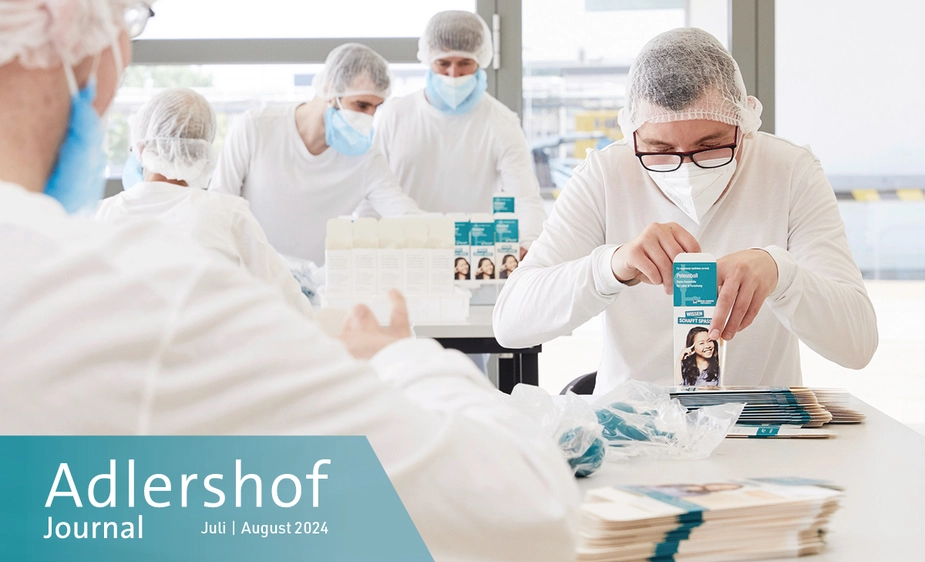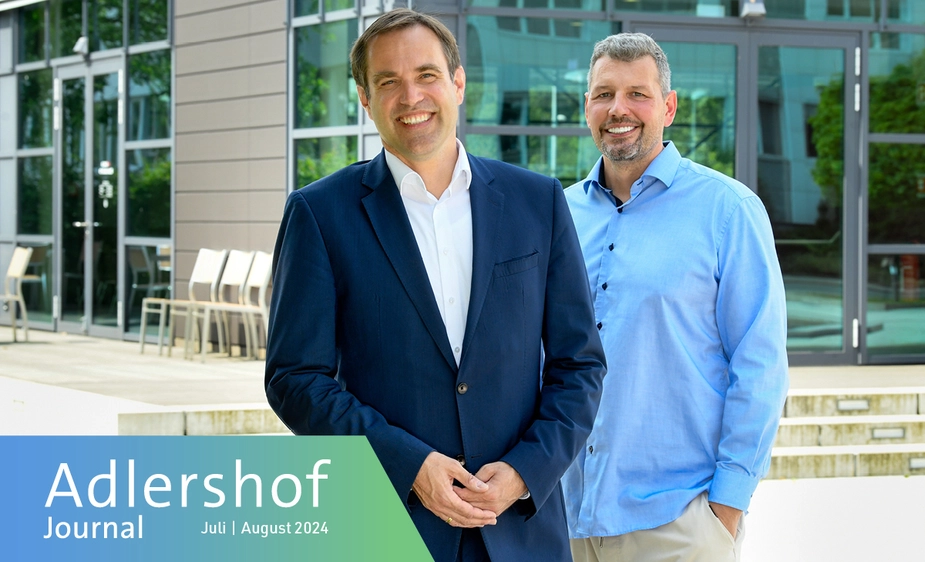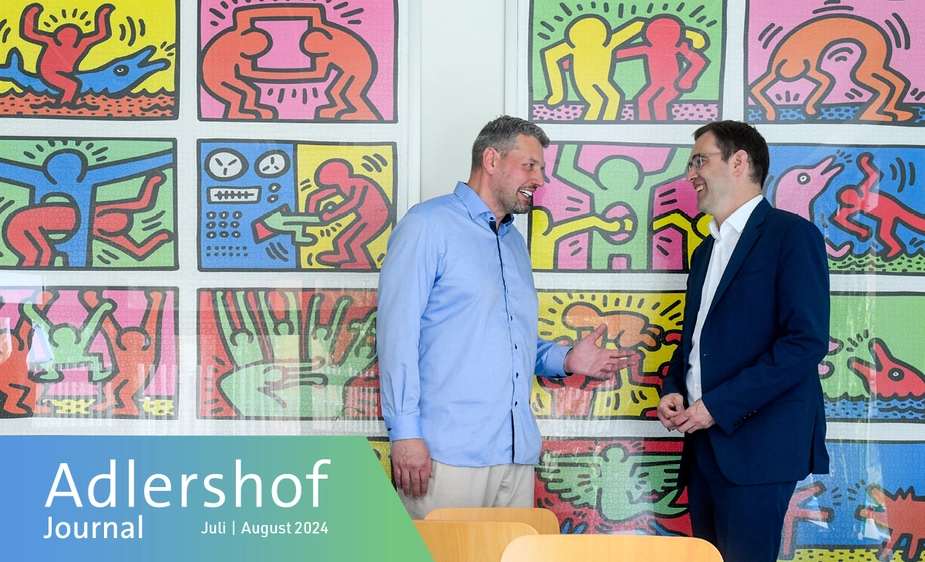»There is quite a bit of hugging«
Practising inclusion for 45 years: people with disabilities put the finishing touches on the pharmaceutical packaging at Berlin-Chemie
Packaging medicines, folding instructions, sticking on labels: At Berlin-Chemie’s Social Enterprise Department in Adlershof, these tasks are performed by people with mental or physical disabilities. They are an integral part of the pharmaceutical company, which has medical manufacturing locations in Adlershof and Britz.
In the GDR, former East Germany, the workplace was typically the primary focal point of social life and the involvement of people with disabilities was a matter of course in many places. This was also the case at the pharmaceutical company Berlin-Chemie in Adlershof. Founded in 1890 and later located in the socialist East, the company became a Publicly Owned Enterprise after World War II. Until the 1970s, people with and without disabilities produced pharmaceuticals here. “At the time, it wasn’t yet necessary to have specific training,” explains Sebastian Jastram, who has been head of the Social Enterprise Department since 2020. Gradually, however, the requirements have been increased. “Not everyone could keep up, but people also didn’t want to lose their jobs.” The company quickly decided to try something new—and launched its Social Enterprise Department in 1978.
Forty-five years later, the divided company in East and West have reunited, Berlin-Chemie became a part of the Italian corporation Menarini, and the Social Enterprise Department has grown significantly. It now consists of two managers, four social workers, two work preparers, and around 30 employees. The latter have permanent contracts and are paid in accordance with collective agreements. They make sure everything related to medicine packaging runs smoothly. The do so on 1,000 square metres—barrier-free, light-flooded, and adjusted to their needs. Anyone entering the department must adhere to hygiene regulations, which include sanitising hands and wearing gowns, hairnets, and beard covers. In the lobby, a magnetic board displays the tasks of the day. Using traffic light systems and pictograms—not all employees can read—the required tasks are clear right away. The managers are there to support should any questions be left unanswered and help with more complex tasks.
A big part of the work in the Social Enterprise Department is to stick the patient information leaflet in the packaging. Not all leaflets can be folded by a machine and pushed into the packaging without damaging the tablet blisters. Sometimes, medical products are mislabelled or include too little or too many blisters. “Our team makes sure everything is correct in the end.” Moreover, the staff sorts company mail, bundle smaller boxes into larger ones, fold patient information leaflets, and move pallets with the pallet truck and wrap them in film. The team's record-breaking years of service demonstrate their genuine enjoyment of working here. One employee, Frank, left the department in January after 45 years. Many of his colleagues plan on staying on until they retire.
“When Sebastian told me he wanted to run the Social Enterprise Department four years ago, I said to him: No, that’s out of the question!” remembers Christian Matschke, member of the board at Berlin-Chemie. “He had a senior position at our location in Britz and I wanted him to climb the ladder. But he did for the love of it. Today I must admit: It was the best decision.” Jastram confirms that switching to the Social Enterprise Department was a career break for him. But today, he couldn't imagine doing anything else. “We wear our hearts on our sleeves here; there’s also quite a bit of hugging.”
Colleagues have approached him at the company’s summer party about when he will return to the Britz location. “Every last one of my coworkers gathered around me and said: 'We're not giving him back! 'We're not giving him back!' The fact is I wouldn’t want to go anywhere else." Jastram would like to encourage other companies to involve people with disabilities more. “It’s doable if people are given a level of trust and the appropriate structures. Our department is the best proof.”
Nora Lessing for Adlershof Journal


